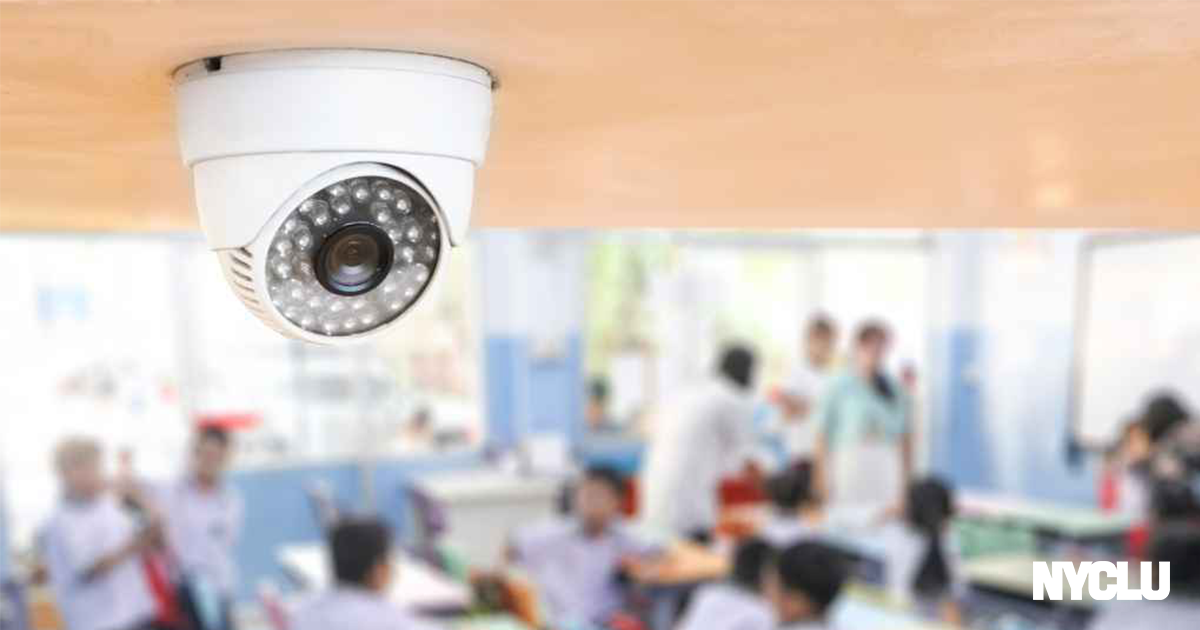Column: Constitutional Limits on Congressional Investigations Into Palestine-Israel Advocacy
Civil Liberties Union

Update: on June 22, 2020, the NYCLU sued the New York State Education Department for its harmful decision to approve a facial recognition technology system for use in Lockport City Schools, in violation of student data protection laws. The lawsuit challenges the decision by NYSED to allow Lockport’s facial recognition system to be activated.
Original story below …
Today, the Lockport School District in New York turned on its face surveillance system.
Now children as young as 5-years-old will have their faces scanned wherever they go. Their images will be captured by a system that is error-prone, discriminatory, and puts students’ safety at risk.
The New York Civil Liberties Union has repeatedly sounded the alarm about the dangers inherent in using face surveillance and other biometric technology in schools. More and more research shows precisely how inaccurate face surveillance is, particularly when used to identify women, young people, and people of color.
Despite these concerns, the New York State Education Department gave Lockport the green light to activate the District’s face surveillance system in November. Today the NYCLU sent a letter to NYSED explaining why this decision is perilous.
NYSED and the District seem to think that no “student data” will be collected by the system under Lockport’s policy governing its use. But that understanding is patently wrong.
Students’ faces will be continuously scanned by the system to see if they match any of the photos in the school’s “Hot List” of people not allowed on school grounds. The data from the system will be maintained for at least 60 days, according to the district’s policy, and there are several carve-outs that allow for these images to be stored for even longer.

The Lockport School District already proved it cannot be trusted with sensitive materials when it exposed private student files, access information for their internal servers, and passwords for its programs and email accounts.
There is also a significant danger that students or staff will be misidentified as people on the Hot List. And the stored information could be accessed by hackers. If that happens, students don’t have the option of changing their faces the way someone can if their password is stolen.
The risks of face surveillance are well known, but there is still a lot of uncertainty around Lockport’s system. Has it been tested for accuracy? How accurate is it? Even less is known about the system’s “object recognition system” designed to identify things like guns. Could the system misidentify a student’s cell phone for a gun? What happens when a reportedly dangerous object is detected?
With these questions unanswered, NYSED nevertheless let Lockport charge ahead and, by doing so, encouraged other districts to do the same. Numerous tech companies with big profits in their sights are peddling biometric surveillance technology to districts across the state.
The Department has opened the floodgates to a new reality of high-tech student surveillance with potentially devastating consequences. Even as other places around the country adopt bans on this unethical and harmful technology, New York will spend our public dollars subjecting students to it.
These systems infringe on the privacy rights of students, parents, and staff and negatively impact school climate by potentially turning everyday school interactions into evidence of a crime or a school rule violation. The use of face surveillance also raises concerns about whether information will be shared with law enforcement or federal immigration authorities like ICE.
Simply put, biometric surveillance has no place in schools.
Fortunately, there is a way New York can stop it. A bill introduced last year that would ban this kind of technology in schools passed the Assembly by a wide margin. It will be introduced again during this year’s session. The legislation will keep facial recognition and other biometric surveillance technology out of schools and require a study of the impacts of this technology.
You can tell lawmakers to support the bill here.